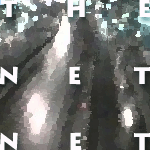The truth is out there. In fact, the truth is really far out
there. Imagine living an episode of the X-Files. Everyday reality,
inasmuch as "reality" has any meaning anymore, is spent watching the
skies in love or fear waiting for God to come in his flying saucer.
This is the world according G. Cope Schellhorn. A world that lacks
Scully and Mulder but has the full supporting cast of Aliens,
Apparitions, Fulfilled Prophecies and question marks behind every
horizon.
Whether extraterrestials will ever land there, I cannot say. But they
will continue their presence in the sky until the fateful last hours
of this cycle of civilization are played out.... Their presence in
numbers, I am certain, tells us that we are living in those last
hours.... After all, where the body (messiah) is, there the eagles
(UFOs) gather. -- page 376
The basic premise of this book is that there is no "God" per se.
"God" is instead the metaphor by which a primitive tribe identified
the interference in their life by a group of well-meaning
extraterrestials. Science-fiction author Arthur C. Clarke postulates
that "Any sufficiently advanced technology is indistinguishable from
magic." This concept, commonly referred to as Clarke's law, is the
underlying thesis of the book.
Apparently disregarding most current thinking on the part of Biblical
scholars, Schellhorn interprets the text literally in search of this
metaphor. Many of the most famous Biblical images and many less
famous ones are reinterpreted in light of this thesis. Genesis becomes
the tale of the "terraforming" of the Earth, followed by the attempts
of humans forcibly evolved from the primates being driven from a state
of paradise by their alien masters because they ate of the fruit of
the tree. The burning bush that appeared to Moses in the desert and
the appearance of God on Mt. Sinai were a spacecraft whose exhaust
fumes and shiny metal surfaces confused the unsophisticated tribesmen
into believing in a omnipotent God. Revelations, the millennialistic
message at the end of the Bible, becomes St. John of Patmos's attempts
to explain his encounters:
The most extensive description of earth changes during "end time"
are found in the Book of Revelations. John has his encounter with
what appears, suspiciously, like an extraterrestrial craft. (Rev
1:10-20, 4:18) An "angel" astronaut, acting as a message of the
greater God, brings him a message.... -- page 272
The second "angel" blowing his trumpet ushers in the Second Trumpet
Plague.... The "great mountain, burning with fire" that strikes the
sea sounds very much like a meteorite or foreign body hit....
This catastrophe... adds misery to misery, but it is not the only
foreign cosmic body to terrorize the earth at this time. -- page 273-4
No one could accuse Schellhorn of not doing his research. However,
there are a few things that people might accuse him of. Schellhorn
discourses in a standard academic tone on subjects that are most often
shouted from streetcorners. The best part about his book is the way
he organizes and interprets vast reams of evidence that may or may not
be relevant to his topic. Without the evidence and close textual
analysis of a number of passages within the bible, this book would be
nothing more than a series of disconnected rants.
The question remains whether the grey-skinned four-foot humanoids who are involved in the majority of abduction cases today are the same extraterrestrials we meet in the Old Testament. Possibly but probably not. -- p 368
I have offered evidence that the Sumerian-Babylonian planet
Nibiru... has caused periods of great earth changes at [3600
year] intervals in the past. I am, as far as I know, the first person
to recognize it as the "Wormwood" of Revelation, and by my calculations,
its return is probable at any time from the present moment to the
next one hundred fifty years. [sic] -- p. 380
Unfortunately, the worst part about his book is the analysis of some
of the evidence. The scholarship in the book ranges from
sophisticated textual analysis referring to other current works of
Near Eastern Archaeology to confusing and sometimes confounding
literalism about coincidences in phrasing of certain biblical
passages.
I highly recommend this book. I found it aggravating, annoying,
and amusing. I think I liked it most because it attempts to challenge
many traditional views about society. The main thing that I
disliked about the book was its unfulfilled potential; the rather
uneven editing and occasional yawning chasms in the flow of the argument
detract seriously from Schellhorn's thesis. This book is not for
everyone. I recommend it for X-Files fans, Biblical scholars,
Christians and Jews both devout and casual, and anyone who's ever
wondered about how far out there the truth is.



